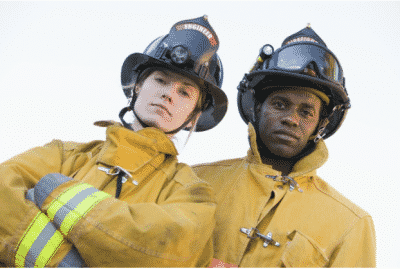Get the help you need right now 855-900-8437 Get Help Now
Get the help you need right now 855-900-8437 Get Help Now
March 4, 2020
Currently, there are 37 IAFF members from Washington state exposed to the coronavirus that have been subsequently quarantined. These members had responded to a series of calls at a local nursing home, where the first U.S. death from the coronavirus occurred. Members learned after the fact that patients treated and transported from the nursing home to advanced healthcare facilities had tested positive for COVID-19, thus leaving our members exposed to the virus due to the dispatch center’s limited protocol for screening callers for the virus.
Since quarantining our members, the dispatch center’s protocol for screening for potential COVID-19 infected patients now includes not only travel or contact with someone who has traveled to certain countries with the virus, the protocol also includes asking if the patient is experiencing any flu-like symptoms, such as fever, cough or respiratory distress. If yes, members don the appropriate personal protective equipment (PPE) – gloves, N95 respiratory, goggles or eyewear, and a disposable gown prior to patient contact.

Quarantine is a restriction on the movement of people who have been exposed to a virus but do not have symptoms or a confirmed medical diagnosis. Isolation is used to separate infected persons who have a communicable disease from those who are healthy to help stop the spread of certain diseases. Refer to our COVID-19 FAQs.
The Centers for Disease Control and Prevention’s (CDC) recommendations are to quarantine for 14 days from the known or confirmed positive COVID-19 patient. Members will be monitored for symptoms (fever, cough, respiratory difficulty, etc.) of the virus while in quarantine. Members exhibiting no signs or symptoms of the COVID-19 will be released from quarantine. Refer to our COVID-19 FAQs.
Please note that members are only placed in quarantine if he/she was not wearing the appropriate level of PPE (e.g. gloves, N95 respirator, goggles, etc.) while treating/transporting an infected COVID-19 patient.
Refer to the IAFF Coronavirus Resource for important information on preparedness and response.
Everyone reacts differently to a communicable disease outbreak. Some go about their usual business, while others will experience anxiety, persistent worry or fear related to a range of issues. During a communicable disease outbreak, it is common to worry about your own health status, as well as that of your friends, family and coworkers.
If you or a loved one is exposed to a patient infected with coronavirus, quarantine may be necessary. While cases of coronavirus remain statically rare in the United States and Canada, knowing what to expect in the event of a quarantine can help reduce anxiety and establish realistic expectations for those impacted.
The Substance Abuse and Mental Health Services Administration (SAMHSA) reports it is normal to experience some anxiety and worry while under quarantine. Worry may focus on the following issues:
Other emotional reactions may include:
More severe reactions may include:
If you or a family member is facing quarantine due to coronavirus, see the SAMHSA Guide to Taking Care of Your Behavioral Health during an infectious disease outbreak.